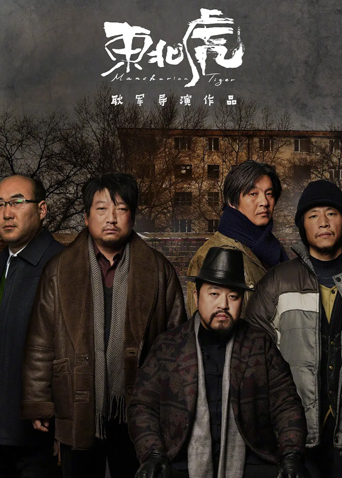 金京浩
金京浩
发表于8分钟前回复 :上海地质学院的肖继业和林育生毕业后,满怀革命热情来到青海高原地质队工作。肖继业的小队发现了新矿,领导让他回上海参与地质报告审批答辩,治疗自己砸伤的腿,并了解离队半年未归的林育生的情况。回到上海后,肖继业发现林育生是因为害怕艰苦生活,才托病不肯回青海,还在其未婚妻夏倩如的毕业分配上拖后腿。肖继业一面忙于做地质报告答辩,一面与林育生的妹妹林岚一起对林育生做思想工作。医生诊断肖继业的腿长了骨瘤,有截肢的可能。更令肖继业痛心的是,他发现林育生的疾病证明是伪造的。于是,他找到林育生,帮助他分析错误的严重性,指出改正方向。林育生的养父也拿出他亲生父母就义前的遗书,对林育生进行教育,终于使他醒悟。最后,肖继业的腿治好了,地质报告审查通过,林育生和夏倩如跟肖继业一起回到地质队,林岚也积极响应党的号召,去了新疆农场工作。
 地铁兄弟
地铁兄弟
发表于6分钟前回复 :Siddartha (Dhritiman Chatterjee) is forced to discontinue his medical studies due to unexpected and brutal death of his father. He has to now find a job in stead. In one job interview, he is asked to name the most significant world event in the last ten years. His reply is 'the plain human courage shown by the people of Vietnam', instead of the expected - man landing on moon. The interviewer asks is he is a communist. Needles to say that he does not get the job.He reaches a coffee shop where he is offered to work for the communist party. When he does not show any interest the party leader tells him about an opening for a medical representative. To escape from the heat and have a snooze, he goes in to a cinema. As a government propaganda newsreel is being shown before the feature, a bomb explodes in the cinema hall. In the stampede that follows, Siddartha, breaks his watch. He goes to a watchmaker but he cannot afford the repairs.Waiting to cross the road, he notices a sexy girl. He drifts back to his days as a medical student in a flashback. The professor is explaining anatomy of female breast. Many flashbacks and dreams occur to Siddartha through the film.On his way to hostel, he has an encounter with some hippies. Along with an ex-classmate, he goes out to see a porn film but to their disappointment, the film turns out to be not-so-pornographic.In such constant wandering in a Calcutta, disintegrated relationships with his sister and a Naxalite (militant communist) brother, his friendship with Keya is only thing that keeps him sane.Keya is a simple girl. They enjoy each other's company but they cannot make any commitment to each other due to the circumstances.After yet another attempt at a job interview, Siddartha leaves the big city to take a modest job of a salesman in a far off small town. He writes to Keya that he still cherishes their relationship. And that he has heard that bird call again but this time it is for real, and not his mind. After completing the letter, he comes out to the balcony of his modest room. The bird calls again. He also hears the sombre chants of a funeral procession. As he turns to the camera, the picture is frozen.This is the first film of the Calcutta Trilogy. The other two were and Seemabaddha (Company Limited, 1971) and Jana Aranya (The Middle Man, 1975). All the three films study the effect the big city of Calcutta has on the educated youth and the price it extracts from them.The seventies were a difficult period for India and West Bengal. The Corruption was rampant; the Naxalite movement had created havoc in Calcutta. In fact, they had turned parts of Calcutta into 'liberated zones'. By the time the Naxalite movement died down, in 1975, Mrs. Indira Gandhi (then, Prime Minister of India) suppressed the fundamental rights and declared "Emergency" for her own political survival. Her son, Sanjay Gandhi became a dictator of sorts without any official designation. The opposition leaders were thrown into prisons.About his social responsibilities as a filmmaker, in an interview with Cineaste magazine, Ray commented, "You can see my attitude in The Adversary where you have two brothers. The younger brother is a Naxalite. There is no doubt that the elder brother admires the younger brother for his bravery and convictions. The film is not ambiguous about that. As a filmmaker, however, I was more interested in the elder brother because he is the vacillating character. As a psychological entity, as a human being with doubts, he is a more interesting character to me. The younger brother has already identified himself with a cause. That makes him part of a total attitude and makes him unimportant. The Naxalite movement takes over. He, as a person, becomes insignificant."In a letter to Seton in 1970, Ray wrote that Pratidwandi was the most provocative film he had made till then. The film is said to have evoked extreme reactions. "People either loved the film or hated it", Dhritiman Chatterjee told Andrew Robinson, Ray's biographer.






